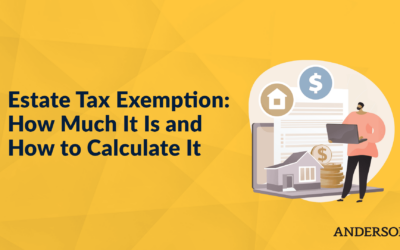
The federal estate tax applies to decedents with valuable estates in every U.S. state. However, some states levy their own estate taxes, including New York. New Jersey also imposes its own inheritance tax, which obligates heirs to pay a percentage of the entire estate in taxes. Because of these state taxes, New York and New Jersey aren’t exactly ideal places to retire and make end-of-life plans. This guide explores why with regard to estate planning.
Key Takeaways
- New York and New Jersey levy estate and inheritance taxes, respectively, in addition to the federal estate tax. This means two separate tax filings at the time of death, depending on the state’s requirements.
- While New Jersey doesn’t impose an estate tax any longer, it does assess inheritance, requiring beneficiaries to file returns on taxable assets received from your estate.
- Unlike the estate tax — which pays out from the estate’s assets — the beneficiary receiving the bequeathed assets is responsible for paying the inheritance tax.
- The Tax Cuts and Jobs Act of 2017 has increased the exemption amounts each year since. This amount jumped to $12.92 million for 2023, owing to inflation.
- The exemption threshold for the New York estate tax is $6.58 million, with rates ranging between 3.06% and 16%.
Tax & Asset Protection Workshop
Learn about Real Estate & Asset Protection at our next
FREE LIVE STREAM
What Is an Estate Tax?
Estate taxes are imposed upon the transfer of assets after your death. There is a federal estate tax, and some states levy their own estate taxes. Each year, the IRS imposes a federal tax on estates surpassing specific thresholds, which adjusts for inflation. The Tax Cuts and Jobs Act of 2017 increased the threshold for federal tax up to $12.06 million in 2022.
For 2023, this threshold jumps to $12.92 million. Rates vary for state and federal estate taxes, with the federal rate ranging between 18% and 40% for 2023. It’s also important to note that for 2026, these thresholds will return to pre-TCJA amounts. For the federal estate tax, the threshold will shrink back to $5 million, as adjusted for inflation.
Estate Tax vs. Inheritance Tax
Estate taxes apply to the total value of the assets you or a loved one leaves behind after death. These assets make up the gross estate and can be subject to taxation as they transfer to the beneficiary. Estate assets can include cash, stocks, bonds, securities, insurance, real estate, and personal assets, such as vehicles, furnishings, and clothing. Annuities, capital gains, and other estate assets exist, but the total fair market value ultimately determines the amount the estate is required to pay.
An inheritance tax, meanwhile, applies to the assets a beneficiary receives after your death. In other words, when your beneficiaries inherit assets after your death, they could be obligated to pay a percentage in taxes. The amount a beneficiary pays in inheritance tax also varies by total asset value and assesses the same threshold as the federal estate tax. New York doesn’t impose inheritance taxes, but New Jersey does.
New York Estate Tax
The New York estate tax threshold is $6.58 million for 2023, jumping from $6.11 million in 2022. In 2014, New York added a “cliff” exemption that increases the threshold over future years, but don’t let that fool you. For estates that surpass the $6.58 million threshold for 2023, this could mean losing a significant portion of the estate.
For estates that exceed the exemption by 5% or less, taxes are only applicable on the amount that surpasses the threshold. However, if your estate exceeds 105% of the exemption amount at the time of your death, it will “fall off the cliff,” and the entire estate will be subject to the tax.
New York Estate Tax Rates
The estate tax rate in New York ranges between 3.06% and 16% and increases within this range based on the total value of the estate. This state tax rate is much lower than the federal range, but the state tax applies to the entire estate versus only the portion that exceeds the federal threshold.
Example: If an individual dies in 2023 with an estate valued at $6.75 million, the estate would exceed the exemption threshold of $6.58 million by $170,000. Much like the federal tax, New York imposes taxes on the percentage that exceeds the threshold, but only up to a certain point. This is where the “cliff” plays a role. If an estate is valued at 105% of this threshold, the entire estate becomes subject to taxation, which could mean losing the entire estate to taxes.
Estate Tax Deductions
Even if an estate is obligated to file a tax return, it doesn’t mean that it’ll owe money. There are several deductions your estate may be eligible for that can help to reduce the value of your estate. With the right deductions, the value of your assets can fall under the $6.58 million exemption. If this is the case, your estate won’t be liable for taxation. Deductions that may apply to your estate include:
- Mortgages and debts: Owed mortgages and debts, including credit and loan debts, are eligible deductions.
- Marital deductions: Assets that go to a surviving spouse are deductible from the gross estate, no matter the amount.
- Charitable deductions: Any gifts to charities, nonprofits, and religious organizations can be deducted from your gross estate.
- Estate planning and administration expenses: The expenses incurred for planning the transfer of your estate, such as funeral expenses and expenses that go toward administering the estate, are also estate tax deductible.

New Jersey Inheritance Tax
In New Jersey, estates that pass to a named beneficiary are subject to an inheritance tax. This tax is imposed on inherited assets with a value of $500 or more. However, the transfer of inheritances to your surviving spouse, domestic partner, parents, grandparents, children and their descendants, or step-children is exempt. Step-grandchildren and their descendants aren’t exempt from the New Jersey inheritance tax.
Siblings and children’s spouses are also exempt from the first $25,000 of assets, but after that, inheritance taxes are required. The inheritance tax rate ranges between 11% and 16% for siblings and children’s spouses. All other heirs must pay 15% in taxes on the first $700,000 of inherited assets and 16% on anything valued over $700,000.
Estate Planning for the Future
While it’s never pleasant to think about death, it’s imperative to plan for the future. With the estate and inheritance taxes for decedents in New York and New Jersey in addition to a federal tax, planning how to reduce or even avoid taxes is more important than ever. At Anderson Advisors, we can guide you through your options to help you ensure your heirs don’t lose their inheritance to hefty state taxes. Contact us today to find out how building assets, such as annuities, can give you added financial security and peace of mind.
Free Strategy Session with an Anderson Advisor
Receive a detailed risk assessment to assist in lowering problem areas that could wipe out all of your assets with one wrong move. Speak with an Anderson Professional Advisor to get your FREE Strategy Session. Limited-Time Offer: FREE (a $750 value.)














